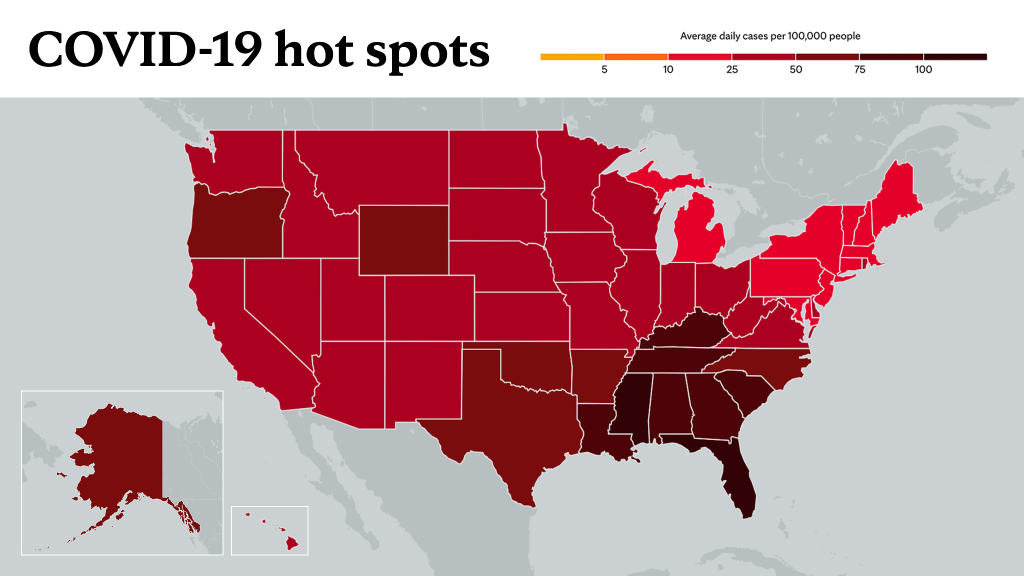
As the COVID-19 delta variant continues to spread, many parts of the U.S. are seeing cases surge. While most severe infections and hospitalizations are among those who have not been vaccinated for COVID-19, breakthrough cases among those who have been vaccinated for COVID-19 have led many to wonder how concerned fully vaccinated people should be.
Dr. Andrew Badley, chair of the Mayo Clinic COVID-19 Task Force, says not all breakthrough infections are the same.
Watch: Dr. Andrew Badley breaks down breakthrough COVID-19 infections.
Journalists: Broadcast-quality sound bites with Dr. Badley are in the downloads at the end of the post. Please courtesy: "Andrew Badley, M.D. / COVID-19 Research Task Force / Mayo Clinic."
"I think it is misguided to lump all breakthrough infections together because they're, very different," says Dr. Badley.
To put it into perspective, Dr. Badley breaks down breakthrough infections into three categories:
Group 1
"Group No. 1 of so-called breakthrough infections are vaccinated people who, without any symptoms whatsoever, acquire infection, and it's diagnosed as part of routine screening," says Dr. Badley. "These vaccines were not designed to prevent those infections. These vaccines were designed to prevent hospitalization, severe illness and death. They do that very, very well."
Group 2
"The second kind of breakthrough infection is a vaccinated person getting symptomatic disease," says Dr. Badley. "For a vaccine that is 90% effective, which all of these approved vaccines are more or less, you expect to see symptomatic infections in 10% of cases. The fact that we're seeing some of these vaccinated people get symptomatic disease is therefore expected."
Group 3
"The third kind of breakthrough infection are those people with impaired immune systems," says Dr. Badley. "We don't expect those people to respond to the vaccine as well. In fact, that is why they were the first group recommended to receive the third booster dose. In those patients, through no fault of their own, they cannot respond to the vaccine as well as your normal host, for lack of a better word. Those are some of the people we're seeing going into hospital now. So when you consider the specifics of breakthrough infections, we can see that the efficacy of the vaccines in terms of what they are designed to do, which is to prevent serious illness, hospitalization and death, the efficacy remains very, very strong. These vaccines are behaving exactly as we expect them to."
Vaccination remains the best way to protect yourself from COVID-19, along with masking and social distancing.
___________________________________
For the safety of its patients, staff and visitors, Mayo Clinic has strict masking policies in place. Anyone shown without a mask was either recorded prior to COVID-19 or recorded in a nonpatient care area where social distancing and other safety protocols were followed.
Information in this post was accurate at the time of its posting. Due to the fluid nature of the COVID-19 pandemic, scientific understanding, along with guidelines and recommendations, may have changed since the original publication date.
For more information and all your COVID-19 coverage, go to the Mayo Clinic News Network and mayoclinic.org.
Learn more about tracking COVID-19 and COVID-19 trends.

Related Articles







